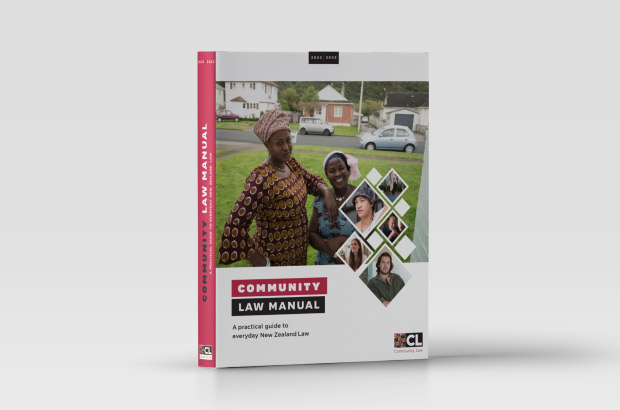Challenging a will
Relationship property laws if your partner has died
What if I owned property jointly with my partner?
If you owned property jointly with your partner, depending on how the ownership was structured, you might automatically own the property when they die (in other words, it’s not included in the estate).
For example, if you owned the house together, or jointly, this is known as “joint tenants”. The deed to the property would say something like: “Owned by [your name] and [your partner’s name]”. In this case, you become the sole owner of the house as soon as your partner died. You’ll need help from a lawyer to transfer the property into your sole name.
If you each owned a share of the house, this is known as “tenants in common”. The deed to the property would say something like: “Owned by [your name] as to a ½ share, and [your partner’s name] as to a ½ share”. In this case, the deceased’s share of the house would be included in their estate and passed to whoever is named in the will.
Although these terms refer to “tenants,” in this context they are about ownership, not about renting or leasing property.
What property will I get if my partner dies?
Property (Relationships) Act 1976, s 61
If you are the surviving spouse, civil union partner or de facto partner of the deceased, you can choose to either:
- take what is given to you in the will or, if there’s no will, by the laws of intestacy, or
- take the property that you would’ve received if you had separated from your partner (in other words, apply for a division of relationship property under the Property (Relationships) Act 1976).
Can I apply for a division of relationship property if I’m in a de facto relationship?
Yes, if you:
- are in a de facto relationship (see: “Marriages, civil unions and de facto relationships”), and either:
- you’ve been in that de facto relationship for three years or longer, or
- you’ve made a substantial contribution to the relationship, or
- there is a child of the relationship, and it would result in serious injustice to not allow you to make an application.
What happens if I choose to apply for a division of relationship property under the Act?
Property (Relationships) Act 1976, s 75
The property division rules that apply after death are largely the same as those that apply after separation (see: “Dividing your property when you split up”).
The general rule is that you will get a 50% of the relationship property. The other 50% will be part of the estate and distributed according to the will (or the laws of intestacy).
Usually, if you choose to get the relationship property, you won’t receive anything else from the estate, unless:
- the court thinks this would be an injustice, or
- if it’s clear that the deceased intended for you to take the gifts left in the will regardless.
Making a claim under the Act would be dealt with first, before any other person’s claim under inheritance law. This recognises that one spouse or partner should not be able to give away the other spouse’s or partner’s share of relationship property in their will.
What part of the estate becomes relationship property?
Property (Relationships) Act 1976, ss 81, 82
The court will presume (unless someone gives evidence showing otherwise) that all property owned individually by the deceased at the time of their death is relationship property. This includes any property earned by the estate (for example, if the estate continues to get rental income).
This doesn’t include:
- property that was dealt with in a contracting-out agreement (unless the agreement is set aside)
- property that the deceased inherited or that was gifted to them in some way (including from a trust), unless that property has become mixed up with (“intermingled in”) relationship property.
This only applies to property that the deceased owned individually. If you owned something jointly with your partner, and if your partner dies, you will automatically own that property in full (see the example box).
How do I communicate my choice to the court?
Property (Relationships) Act 1976, ss 65, 67, 69
You have to give written notice of your choice. This requires a signed certificate from a lawyer stating that they have explained the effect and consequences of your choice to you.
You must then give the notice to the executor/administrator of the estate. If administration hasn’t been granted yet, you’ll have to give notice in the appropriate registry of the High Court.
It’s important to get advice from a lawyer, because once you’ve made your choice, you usually can’t change your mind. However, the court can set aside a choice if it would be unjust to enforce it.
What is the time limit for making a choice?
Property (Relationships) Act 1976, ss 62, 68, 89, 90
You must choose whether to make a claim under the Property (Relationships) Act or to inherit property under the deceased’s will or the laws of intestacy:
- within six months of the date of death, if the estate is small enough not to require a grant of probate or letters of administration, or
- within six months after a grant of probate or letters of administration, if the estate is larger.
You must start proceedings within 12 months of either the date of death, or the grant of administration, whichever is applicable.
If you don’t make a choice, or you miss the deadline to begin court proceedings, the default is that the Act does not apply. The executor/administrator can distribute the estate according to the will (or the laws of intestacy if there is no will).
Note: You can apply for an extension of time. The court might extend the time limit if the estate hasn’t been completely distributed. However, the court will not undo any distributions that were made before it received your application.


